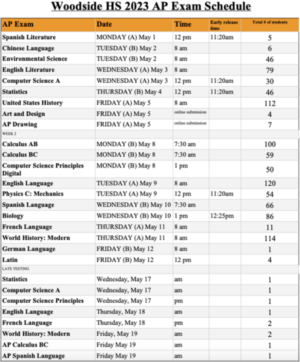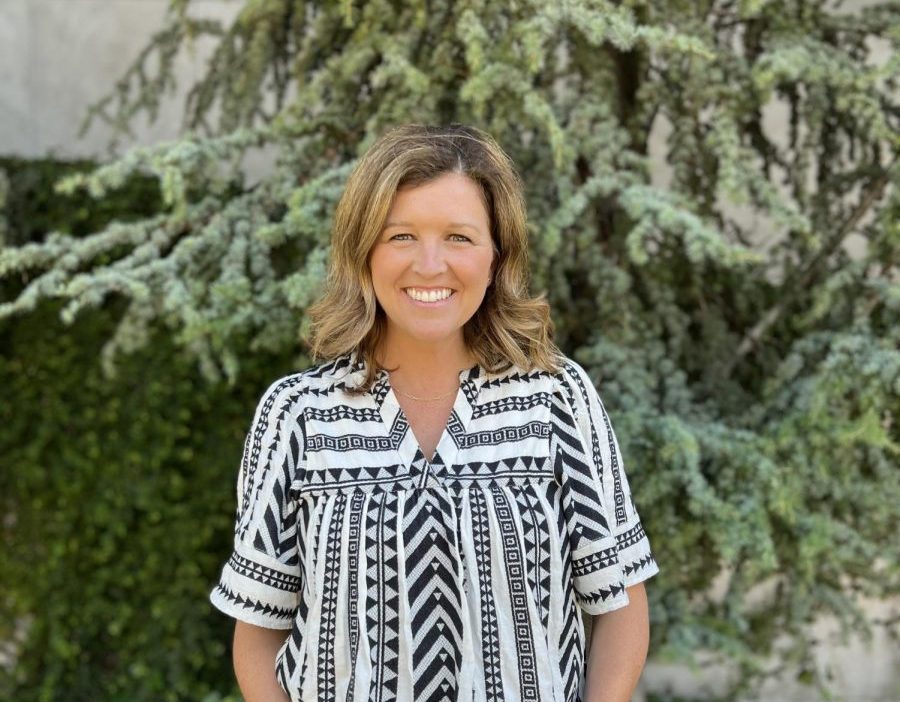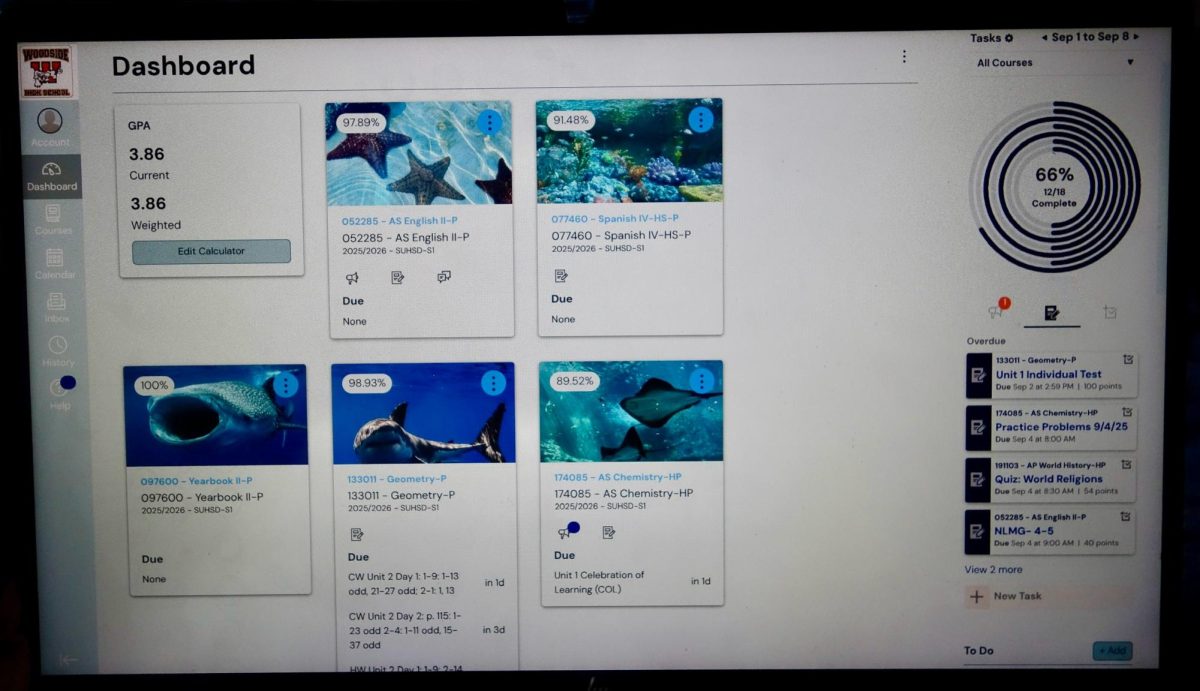Advanced Placement (AP) exams are right around the corner, with the first AP exam, AP Spanish Literature and Composition, as soon as May 1st. Ask most AP students and they will tell you that studying has very much begun, with many receiving practice exams and huge review packets from their teachers.
In AP classes, most, if not all, of the focus is structured around subjects tested for on the AP Exam. In other words, students spend most of their time practicing for the AP exam in their respective AP classes. But along with this AP exam, AP classes are required to give a spring final at the end of the year, as with any other class.
“The point of semester finals is to assess whether students have learned all the things that they were supposed to have learned throughout that semester or throughout that school year,” AP Biology teacher Joseph Ezrati said.
Students receive two finals in each of their classes over the course of a school year, one at the end of each semester.
“[The finals] are not the only part of a student’s grade,” Ezrati said. “It’s not the only way that students demonstrate their understanding. But it is one critical component to [demonstration of understanding] as there are high-stakes tests, and this is one of them.”
Different AP teachers have tackled assigning the fall final in a variety of ways, as the school allows different teachers to assign different final configurations, as long as they are academically focused.
“For [my class] personally, my fall semester final is exactly representing what students are going to see on the AP exam,” AP World History teacher Patrick McDevitt said. “The final is a series of basically FRQs [Free Response Questions] and doing some prep for the LEQ [Long Essay Question], a kind of the high stakes on-demand writing that is going to equate to what students will see on the AP test.”
Incorporating practice for the AP exam into the fall final is a common practice among AP teachers. For the spring final, it’s a different story, as the AP exam has already finished.
“In the first semester, the final serves the same purpose as any other class,” AP Physics C: Mechanics teacher and AP Calculus BC teacher Stephanie Finander said. “But in the second semester, it’s weird because really the summative exam for the whole year is the AP test. So that makes it kind of weird because do you really need two of those?”
Since the AP exams have already passed, some teachers assign creative projects or methods of reflecting learning that aren’t structurally similar to the actual AP exam.
“I don’t see the need to replicate that four hour test on a spring final -to me that’s not a good use of time,” McDevitt said. “I like my spring final to be more student centered and more creative. I encourage students to complete an independent research project about a topic they’ve not been able to explore due to the demands of the AP course and then our spring final is basically a presentation of that independent research.”
Classes like AP Physics C: Mechanics and AP Calculus BC, to name a few, have different requirements placed on them by the school, allowing for slightly less flexibility in final choice.
“So for my classes, I am required to give a summative exam activity at the end, but I don’t want to make it exactly like the AP [exam] because they already did that,” Finander said. “It’s not really useful to have the students re-study something that they’ve already done when we’ve gone on to something else.”

That being said, to some students, it’s frustrating to receive another substantial exam after the AP exam.
“I think the AP exam functions as a final,” senior and AP student Morgan Helfand said. “This whole year, we’re studying to take this AP exam, so if the final isn’t going to help with that, it probably doesn’t serve a purpose.”
Having already taken an accelerated course, one where the learning is at a college level pace and involves college level content, for students to take another large test is questionable to some.
“It makes sense why schools continue to uphold end-of-year finals for AP classes, but it really doesn’t do much good in terms of learning or class enjoyment,” junior and AP student Dominic Barty said. “AP students learn an entire class in less than a year, culminating in an AP exam that takes weeks, if not months, to prepare for. So why should we add another test after the ‘big kahuna’?”
While there are students who might not agree with the spring final, there are also those who appreciate the chance to demonstrate learning without a huge test, in the form of a project or presentation instead.
“I don’t think [the spring final] should be removed,” junior and AP student Kian Sharifzadeh said. “90% of the time it’s a project, which I think is a cool way to end the year.”
The spring final also serves another purpose, as it acts as an exam for students who did not decide to take the AP exam.
“[The spring final] was especially important because we don’t want kids to just feel like, oh, we can just do nothing for the rest of the year,” former AP Biology and current Biology teacher Ernest Lo said. “You have a certain number of people who don’t take the AP exam. Is it really fair to [AP exam takers], if [others] didn’t take the test, and now they get to skate out on a final too?”
Currently, it looks like the spring final, and also the fall final, are here to stay for AP students, as there has been no recent talk among teachers of removing finals for AP classes.
“We haven’t talked about anything as an AP group in more than a year because we haven’t really met as a group,” Finander said. “But when the AP teachers do talk about finals and exams and other stuff, they teach different classes and so they have really different points of view on it. So you know, it depends on the future.”












